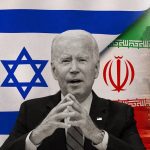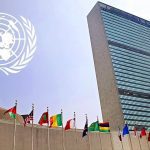Over the course of the past decade, the Eastern Mediterranean came to stand out as one of the sub-regions that attracted the attention of regional and international powers. This is attributable primarily to the volume of natural gas reserves estimated at 340 trillion cubic feet, which added an economic value to the region that enjoys strategic importance, causing the Eastern Mediterranean to become an arena for Regional and international competition, with all the parties seeking greater influence to secure their interests.
Defining Features
In contrast with 2021, a year where the Mediterranean Sea was about to flare up through a military confrontation between Turkey and Greece against the background of the Turkish activities in the territorial waters of Cyprus and Greece and as a result of Turkey’s attempt to impose a fait accompli that contradicts the rules of the international law of the sea, 2021 marked relative calm for the region, or at least a latent escalation that did not rise to what has been the situation in 2020. This necessitates identifying the key characteristics governing interactions in the Eastern Mediterranean in 2021 as a way to understand the potential paths in 2022. Below we detail these characteristics:
I- Completion of Institution-Building: The institutional nature was a dominant characteristic of international interactions in the Eastern Mediterranean. In March 2021, the East Mediterranean Gas Forum (EMGF) Charter entered into force. After a further four months, the EMGF Headquarter Agreement was signed, and later approved by the Egyptian House of Representatives in November 2021, which contributed to the completion of all the technical and legal aspects aimed at transforming the EMGF into a governmental organization to be based in Cairo.
Additionally, 2021 witnessed the birth of the Friendship Forum whose first meeting was held in Greece in February 2021 with the participation of seven countries, comprising three European and four Arab countries, in a gathering that can be described as being cross-border, indicating the interdependence between challenges facing the region and the desire of regional countries to promote common action towards undermining the threats and challenges facing the region.
II- Deterrence through Security Arrangements: Security arrangements in the Eastern Mediterranean weren’t missed in 2021, despite the decline of military confrontation indicators. These arrangements have taken different forms, including military drills and maneuvers between countries of the region as well as defense pacts. For instance, Medusa-11 joint military drill was resumed in November and several defense and security partnerships were signed, primarily the defense agreement between Greece and France in September which wasn’t limited to Greece’s purchase of three French frigates, but went beyond to develop into an agreement on a format that establish mutual military assistance in case of a military attack on any of the two countries. Similarly, in October, the United States and Greece signed an agreement to extend defense cooperation between them.
These arrangements come in view of France’s and Greece’s desire to jointly confront several challenges, primarily the Turkish threat where France and Greece view Turkey as destabilizing the security of the Mediterranean and as a common actor in all the threats that affect the national security of France and Greece. The France-Greece agreement also seeks to secure the southern flank of NATO. In many respects, the agreement between Washington and Athens plays in the hands of Washington given the US desire to confront the rising Russian and Chinese influence in the Eastern Mediterranean. The agreement allows the United States to access Greek military bases, which allows Washington to hedge against any potential threats.
III- Testing Diplomatic Endeavors: In 2021, the diplomatic tool was tested several times in the Eastern Mediterranean region with the aim of avoiding clashes and escalation between actors in the region. Ankara’s endeavors for rapprochement with Cairo through two rounds of exploratory talks in May and September was a prominent development, let alone the rapprochement between the UAE and Turkey, which gave rise to a visit of the Crown Prince of the Emirates to Turkey in November, and the exploratory talks between Turkey and Greece after a hiatus of about five years.
Turkey’s diplomatic approach comes within Ankara’s attempts to overcome regional isolation and exclusion it suffered due to the collective arrangements in the Eastern Mediterranean, and deal with regional and international shifts, foremost of which is the new US administration. On the other hand, 2021 witnessed attempts to settle one of the intensifying conflicts between Lebanon and Israel, where talks between the two parties were resumed before coming to a halt in their fifth round in May, due to the divergent positions of both countries and incompatibility.
While these endeavors are still in the testing phase and have not given rise to any major changes given the complexity and intertwining of challenges, they come among the significant changes and transformations that emerged in 2021 in the Eastern Mediterranean.
IV- Continuation of Armed Conflicts: The renewed cycle of conflict is a key feature that has taken shape in 2021 in the Eastern Mediterranean. The Syrian conflict persists without a major breakthrough being achieved. Furthermore, the lack of confidence, polarization, and conflict of interests between internal and external parties have hampered the Libyan elections and led to the failure of the political track. The Libyan elections were projected to be held on 24 December; however, this did not happen and several militias in western Libya threatened using force and escalation. At the same time, international efforts have not succeeded in dealing with the issue of mercenaries and foreign forces in the country, let alone failure to unify Libyan institutions.
On another level, the Eastern Mediterranean countries experienced a violent escalation and a large-scale confrontation in the Israeli war on Gaza in May 2021. The resurgence of this confrontation is one of the threats that would affect the security of the Eastern Mediterranean. The Egyptian efforts and effective mediation helped, however, contain the conflict after reaching a cease-fire arrangement.
V- Promoting Strategic Partnerships: The tripartite cooperation between Egypt, Cyprus, and Greece continued in 2021 through the convening of the 9th Tripartite Summit in October, within the framework of the tripartite cooperation mechanism launched in November 2014, in an indication of the institutionalization of partnership between the three countries. On the other hand, Greece hosted, in November, the third 3+1 summit, an alliance launched in early 2020 and includes France alongside Egypt, Cyprus, and Greece. These alliances and collective arrangements indicate the desire of the Mediterranean countries to promote cooperation between them to face common challenges, whether related to terrorism, armed conflicts, or any other threats such as illegal immigration, the refugee problem, and energy-related issues.
Collaboration or Conflict?
Amid these transformations, interactions in 2022 can be formulated under two frameworks. The first is a cooperative framework that is supported by several indicators, including the desire of the parties involved in the Mediterranean to avoid military confrontations to preserve their interests. Additionally, the collective political and security arrangements the region witnessed will, at large, promote collaboration over conflict. As such, 2022 could witness a number of transformations in the Eastern Mediterranean where some countries could become involved within the EMGF organization, whether through membership or obtaining observer status.
Member states of the EMGF could push towards mediation to settle maritime disputes. These countries may manage to push Israel and Lebanon to return to negotiations on maritime borders. Israel’s joining of the EMGF and signing the Abraham Accords could be a gateway towards addressing these intricate disputes. Resumption of negotiations between the two countries may be on the table in the wake of the Lebanese elections scheduled for March 2022.
As for armed conflicts, the Libyan crisis may see a paradigm shift by conducting the elections in 2022, which would give rise to a legitimate authority that takes care of the deferred and major issues such as the unification of institutions and the expulsion of mercenaries.
However, the cooperative path could be reversed giving rise to the conflict scenario. This depends mainly on Ankara’s position and how serious it promotes the reconciliatory approach and abandons gunboat diplomacy and its attempts to impose a fait accompli through gas exploration. This remains in question given Turkey’s announcement of acquiring a fourth drilling ship for gas exploration in the Eastern Mediterranean and preparing for more drilling activities in the middle of next year. What’s more, Turkey didn’t give up its goals and aspirations in the Eastern Mediterranean, notwithstanding the declared pacification efforts. This is evidenced by its announcement in May 2021 of drilling wells in disputed areas with Cyprus, as well as expulsion of the Italian research vessel Nautical Geo during its mission within the framework of the EastMed project. Turkey justified interception of the ship’s course by claiming that the vessel entered areas falling within Turkey’s continental shelf under the agreement signed with the Sarraj government in November 2019.
Overall, the cooperative scenario is likely to dominate interactions in the Eastern Mediterranean region in 2022 and chances of open conflict or direct friction between active actors remain limited, while a state of trepidation and caution may prevail in anticipation of any possible Turkish moves.












